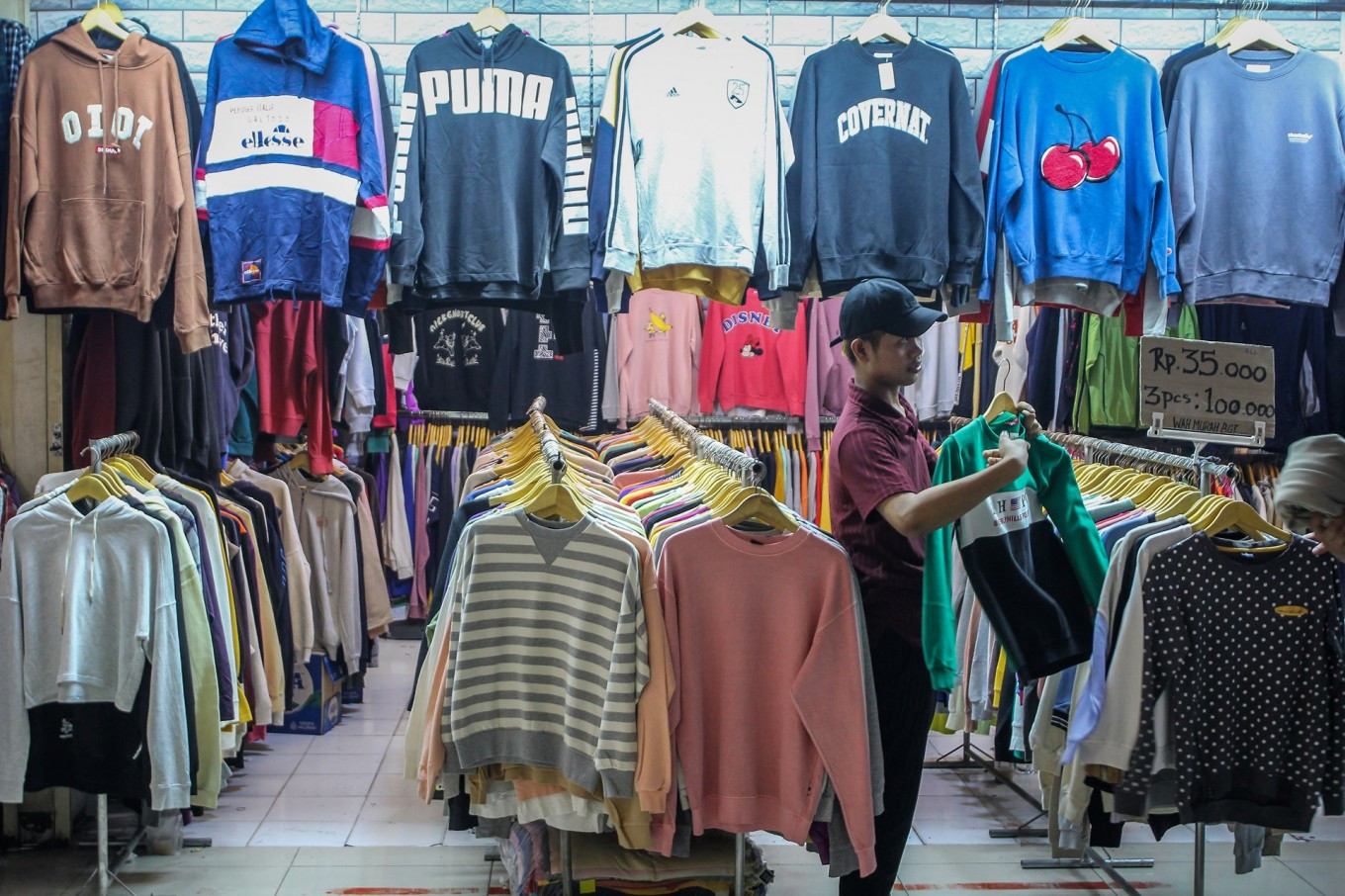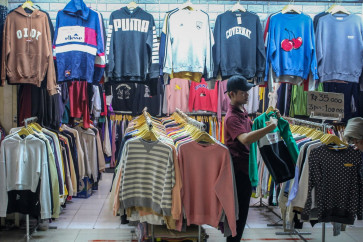Popular Reads
Top Results
Can't find what you're looking for?
View all search resultsPopular Reads
Top Results
Can't find what you're looking for?
View all search resultsAnalysis: Regulating thrift, reviving industry
Change text size
Gift Premium Articles
to Anyone
F
inance Minister Purbaya Yudhi Sadewa is turning his attention to Indonesia's booming illegal thrift trade, an enduring challenge that persists despite years of government crackdowns. Thrifting is deeply rooted in Indonesian culture, not only as a fashion statement but also as a way for many to make ends meet. Yet, Purbaya's latest move signals a renewed determination to protect the domestic textile and garment industry, which continues to struggle against a flood of cheap, second-hand clothing imports.
Purbaya recently announced tighter oversight of illegal used-clothing imports. Although the trade has been officially banned under Trade Ministry Regulation No. 40/2022, thrift markets remain vibrant, exposing weak enforcement by the customs office, an institution under Purbaya's own authority. The new policy, he said, seeks not to eliminate thrifting entirely but to ensure the sustainability of local textile producers and micro, small and medium enterprises (MSMEs) in the garment sector.
The announcement has stirred mixed reactions among vendors and consumers, particularly at Jakarta's iconic Pasar Senen, where thrifting has long provided affordable and distinctive clothing options. Many sellers fear the crackdown could threaten their livelihoods. Purbaya, however, insists that the goal is not to shutter Pasar Senen but to revive Indonesia's weakened textile industry and create space for small-scale domestic producers.
The finance minister's stance has gained support from several industry associations. The Indonesian Textile Association (API) and the Indonesian Street Vendors Association (APKLI) have both welcomed the plan. API deputy chairman David Leonardi said tighter regulation would discourage illegal importers and close long-standing loopholes. He warned that the influx of second-hand imports had sharply reduced demand for locally made textiles, threatening millions of jobs. David also rejected claims that thrifted clothes offer superior quality, arguing that many are of low value and could even pose health risks to workers and consumers.
APKLI chairman Ali Mahsun echoed those concerns, noting that the surge in imported used garments has weakened sales of local products and further burdened domestic producers. While the government hopes to steer consumer demand toward Indonesian-made goods, thrift enthusiasts argue that the focus should be on stopping illegal imports rather than transforming traditional thrift markets into outlets limited to local products.
For many Indonesians, buying second-hand clothing is not merely about saving money but about finding unique, well-made items at reasonable prices. Pasar Senen's continued popularity stems from its vast selection of affordable apparel, something that local producers have struggled to match. Yet economists warn that the dominance of thrift imports carries both macroeconomic and microeconomic risks, undermining national industry and small businesses alike.
From an economic perspective, the persistence of illegal thrift imports reflects deeper structural weaknesses. The limited competitiveness of domestic textile producers, coupled with declining purchasing power, has made Indonesian consumers increasingly price-sensitive, creating fertile ground for second-hand imports to thrive. The steady flow of cheap clothing not only distorts the market but also worsens the trade imbalance, as demand for local products erodes and employment opportunities shrink.



















